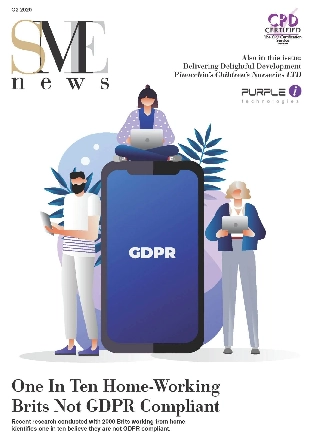It’s no secret that the B2B buyer journey is getting lengthier, more complicated and buyers’ expectations are higher than ever before. According to a recent study by Showpad, over half of buyers feel the journey has gotten longer over the past five years, and despite the recent rise in chatbots and virtual assistants one thing remains a constant – buyers still want the human touch. In fact, 70% of B2B buyers demand interactions with a salesperson during their sales journey.
But what is causing the buying journey to lengthen? And with salespeople still being crucial to that journey, how can they harness their skills to become the drivers of sales and ultimately, business success?
Sales cycle stallers
We’ve seen major improvements in the sales processes within B2C eCommerce but the same is yet to be said for B2B. Closing deals has become even more complex, but what is really dragging out the process? Content is key in the world of B2B sales but more often than not, it is content that is slowing and ultimately losing sales. Almost a third of buyers are unable to source information when they need it and salespeople are struggling to find and share the right content at the right time.
Salespeople are also having difficulty determining what content is having the most impact, meaning marketing teams are continuing to churn out the same old content with no idea of whether or not it’s effective, wasting both time and resources. Buyers now demand both faster and more streamlined service with a growing demand for personalised content that clearly articulates value. But when you open the black box into what content is actually moving deals, marketing can better equip sales teams to personalise their conversation, exclusively offering content that the prospect would find relevant.
In addition, sellers are struggling to equip buyers to sell the value of their product or service and prove ROI internally within the buyer’s organisation. Sellers need to really understand what their buyers need and how they can uniquely deliver value. This is where sellers can differentiate themselves and demonstrate true relevancy ‒ essential in an increasingly crowded and competitive business landscape.
Give customers what they need
An average salesperson will sell customers what they need right now, an amazing salesperson will help you fix the problems you’ll face tomorrow. The best salespeople understand a business, its industry and its problems, so they can make truly meaningful change within that organisation.
When selling in B2B environments, more often than not you are also selling to more than one buyer within that company. You need to convince representatives from multiple teams that this is an investment worth their time and money. Flexibility is key, and selling a product to a finance team will differ greatly from selling to a sales team, and salespeople must be able to seamlessly adapt both the information and their techniques to fit their customer’s needs. All whilst keeping the sales cycle aligned with your customer’s goals.
Not only do the best salespeople truly understand their buyers and buyers’ goals, they also deliver great content to drive home their points and demonstrate the impact their product or service will make. Recent research shows that customers find case studies and technical specs the most helpful when it comes to deciding on a purchase. Additionally, 40% of customers prefer having face to face discussions and 38% prefer on-site demos. As mentioned before, buyers need to prove ROI of the purchase internally, so it’s not surprising that 38% said an ROI calculator would help them in steering purchasing decisions. To help with this, content organisation is key. Disorganised content causes salespeople to waste valuable time. With sales enablement, for example, you can streamline the process of storing, managing, sharing and updating content. Content can also be saved under keywords giving salespeople easy and consistent access to the right content, at the right time.
The shining salesperson
The continued importance of the human touch in B2B sales may offer salespeople an opportunity to step in shine but research shows that sellers only spend about a third of their time actually selling. Most of their time is instead spent on admin tasks. With buyers demanding more personalised experiences, automating day-to-day admin tasks is becoming more of a necessity to ensure that sellers are spending their time doing what they do best – selling.
We’ve already seen how important content is for salespeople, but this content means nothing if it isn’t delivered effectively. With in-person and phone interactions being such a high priority for customers, salespeople need to know how to do this well. This is where on-going training is crucial. Too often, training begins and ends with onboarding, but both formal and informal learning must be continuous to keep up with buyers’ ever-changing needs and expectations. With shared learning and training spaces, salespeople can learn from their colleagues by seeing what worked well and what could’ve been improved in previous pitches and similar situations. As the phrase goes, often the best way to learn is also through doing, so it’s vital to have practice phone calls and meeting scenarios and to use these to gather feedback, tips and advice from managers or peers.
And selling to your buyer is only part of the battle, you need to prepare your buyer for their own internal sell. With the correct training, salespeople can help and teach their buyer to also become a great internal salesperson to guarantee that everyone gets onboard and to close that deal.
Despite advancements in technology, B2B buyers clearly still need that human touch. To get ahead, organisations need to empower their salespeople with access to the right knowledge and the right content to personalise buying experiences, engage buyers and build long lasting relationships. Afterall, it is salespeople who determine the success of sales and the business as a whole.







